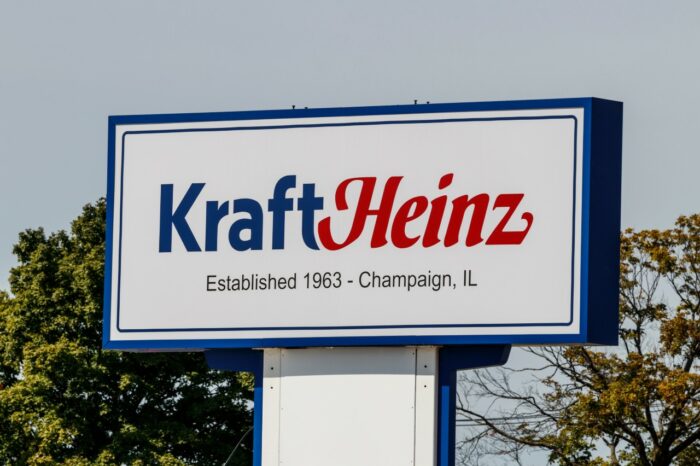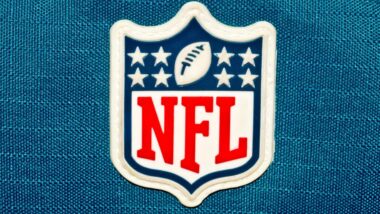Top Class Actions’s website and social media posts use affiliate links. If you make a purchase using such links, we may receive a commission, but it will not result in any additional charges to you. Please review our Affiliate Link Disclosure for more information.

Kraft Heinz Workplace Harassment Lawsuit Overview:
- Who: Black Kraft Heinz employees lodged a $30 million lawsuit against the company.
- Why: The former employees say they were subjected to workplace harassment, including death threats, that the company did little to stop.
- Where: The lawsuit was filed in California state court.
Coworkers and supervisors “egregiously harassed and discriminated” against Black Kraft Heinz employees during their many years of tenure, calling them the n-word, drawing swastikas on lockers, sending them death threats, and blocking their promotions, a new $30 million lawsuit claims.
The lawsuit was filed in California by lead Plaintiffs Alex Horn, Lance Aytman, and Keith Hooker — all Black former Kraft Heinz employees. Kraft Heinz, which, in 2019, paid $13 million to end claims it forced employees to work unpaid overtime, allegedly the Civil Rights Act by allowing for racial discrimination and workplace harassment at its Tulare plant.
The lawsuit alleges that the “ubiquitous brand” serves as a reminder of the years of anti-Black racism they experienced, with comments from coworkers including quit or die n-word, all n-word must go, and no n-word as coordinators.
“Racial epithets, dropped in both targeted and casual ways, and racist symbols were commonplace at the Plant,” the workplace harassment claim reads.
“Non-Black employees frequently used the n-word in reference to specific Black coworkers and in general. Not only were supervisors made fully aware of these racist incidents from multiple Black employees’ complaints, but they also personally witnessed the misconduct—and on some occasions committed it.”
According to the workplace harassment lawsuit, Horn, Aytman, and Hooker were made aware from the start of their employment that their decent paychecks came at a high price. “The Tulare Plant was rife with anti-Black slurs, innuendos, threats, and discrimination.”
Black Employees Allege Years of Workplace Harassment at Kraft Heinz Facility
Horn, who began working at the company in 2011, is Black and Latino. According to the claim, he suffered years of race discrimination and workplace harassment by his non-Black coworkers and managers. “The abuse culminated in Horn’s development of post-traumatic stress disorder and other mental health conditions, which necessitated a medical leave of absence.”
Then, in September 2019, during this unpaid leave, Kraft Heinz fired Horn.
Aytman, who became a full-time employee in 2013 after two years in which he “persistently tried to obtain full-time employment,” says he faced years of race discrimination and workplace harassment by his non-Black coworkers and managers. The abuse resulted in Aytman’s development of anxiety and depression, requiring a medical leave of absence during which he was fired in July 2019, the lawsuit explains.
Hooker worked at the Tulare Plant from 1996 until his constructive discharge in June 2018. In 2012, he found a note in his personal locker that read, “No [n-words] as coordinator.”
“As the only Black employee with the title of Back-up Coordinator, Horn’s solid work performance should have made him eligible for promotion to Coordinator. Kraft Heinz management took no corrective action after Horn turned in the note,” the workplace harassment lawsuit says.
The harassment escalated further in 2012, with someone breaking into and vandalizing Horn and another Black employee’s vehicles parked in the Tulare Plant’s parking lot.
During the vandalism, someone urinated on Horn’s front tire, the claim alleges. Horn says he had to pay out of pocket to replace the stolen items and repair the damage.
Horn complained to the Plant Manager about how he was targeted for racial harassment, but rather than address his concerns, he was told to “give [the Company] some time” and threatened retaliation by informing him that if he retained legal counsel, he “could no longer work” at Kraft Heinz, according to the lawsuit.
“Ultimately, noticing how the work environment had changed him as a person, Hooker felt compelled to leave the Company in 2018, despite being only a few years shy of his planned retirement after over two decades of service.”
The workplace harassment lawsuit states that all three employees were unable to continue working at Kraft Heinz in order to protect their “already damaged mental health and ensure their physical safety.”
“Specifically, death threats forced Hooker to resign and Horn and Aytman to take medical leaves of absence in 2018.”
Horn and Aytman repeatedly said that they wished to return to work, so long as their lives would no longer be under threat. Rather than agreeing to take basic measures to ensure Horn and Aytman a modicum of safety at work, or allow them to continue their medical leave unpaid, Kraft Heinz sought to terminate Plaintiffs Horn and Aytman, the lawsuit alleges.
“The anti-Black abuse came from peers and supervisors, who controlled whether Plaintiffs would receive promotions, transfers, and raises. Not surprisingly, the supervisors passed over Plaintiffs in favor of non-Black employees.”
Despite the continuation and escalation of the harassment and discrimination, Kraft Heinz failed to take substantive actions adequately aimed to deter further misconduct or to safeguard Black employees despite full knowledge of the racism at the plant, the claim alleges.
The lawsuit claims that although no monetary sum could restore the “trust, dignity, and well-being that years of unmitigated racist abuse deprived them of,” the group seek recompense for the severe harm they have suffered including lost income and ongoing emotional distress. They seek $30 million in damages.
The group is suing for violations of the Civil Rights Act and Americans with Disabilities Act and seeks certification of the class, damages, legal fees and costs, interest, and a jury trial.
Do you think $30 million is enough for the alleged workplace harassment? Tell us your thoughts in the comments section!
The plaintiffs are represented by Felicia Gilbert of Sanford Heisler Sharp, LLP; and Edward Chapin and Rebecca A. Ojserkis of Sanford Heisler Sharp, LLP.
The Kraft Heinz Workplace Harassment Lawsuit is Horn, et al. v. Kraft Heinz Foods Company LLC, Case No. 1:21-at-00830 in the U.S. District Court Eastern District Of California.
Don’t Miss Out!
Check out our list of Class Action Lawsuits and Class Action Settlements you may qualify to join!
Read About More Class Action Lawsuits & Class Action Settlements:















One thought on Workplace Harassment, Death Threats to Black Staff Permitted by Kraft Heinz, Says $30M Lawsuit
NO 30 mil is not enough, The company was well aware of what was happening at this plant for years It should be 100 mil to cover all black employees that ever worked at the plants owne by the company and a boycott of all their products!